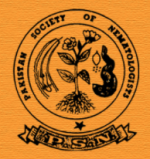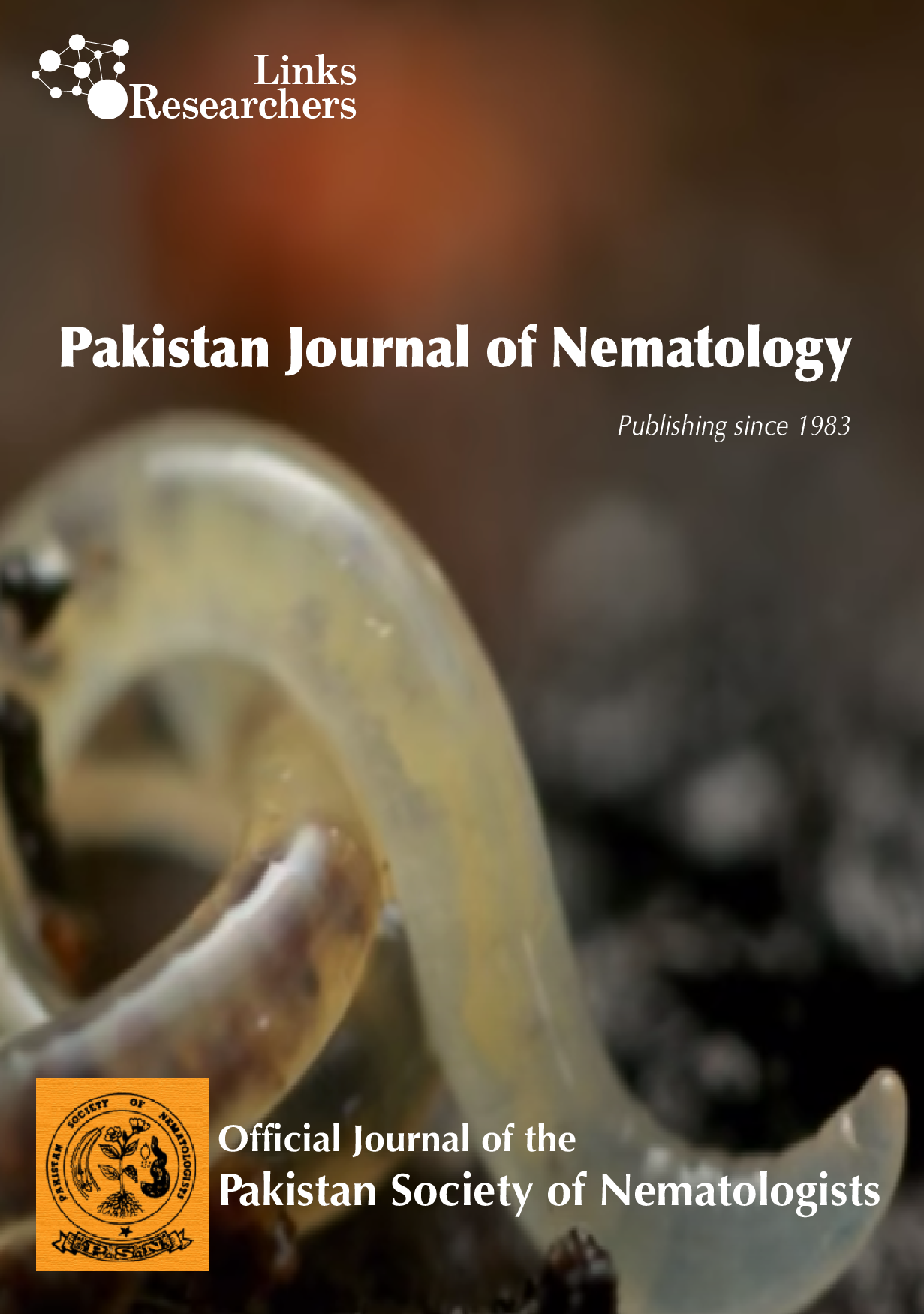Cotton is the most important cash crop of Pakistan and plays a vital role in the economy of country. It is attacked
by insect pests including bollworms. These pests are controlled by frequent use of pesticides. However, the
indiscriminate use of synthetic pesticides has disturbed agro-ecosystem and costs over US$ 195 million per year to
the nation in terms of environmental and social costs. Pathogenicity and efficacy trials of indigenous
entomopathogenic nematodes (EPNs) isolates have positive results. Four EPN isolates viz., Steinernema
pakistanense, S. asiaticum, S. feltiae and Heterorhabditis indica were assessed for their infectivity against the
cotton bollworm complex in field. EPNs cultured on Galleria mellonella L. and stored in distilled water at 5 °C,
were kept at room temperature for 24 hrs before use. The number of bollworms on plants before and 24 hrs after
EPN spray @ 1000 and 2000 juveniles/ml water were assessed for mortality percentage. All four species of insects,
viz., Helicoverpa armigera, Earias insulana, E. vitella and Pectinophora gossypiella were found susceptible to
infective juveniles of the four EPN species; S. pakistanense was the most virulent EPN species. There is a dire need
to focus further research on these EPN isolates to explore and exploit their potential as an alternative to synthetic
pesticides in Pakistan, especially in IPM programmes.





